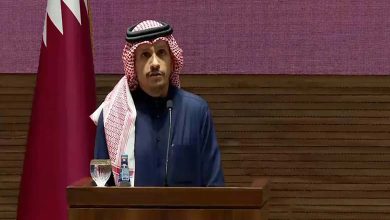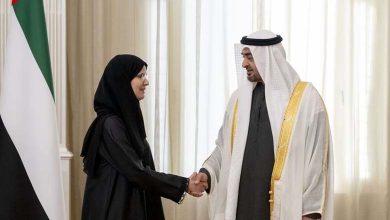By the Numbers: What the International City for Humanitarian Services in Dubai Provided in Aid

The United Arab Emirates continues to support affected populations, providing humanitarian aid to alleviate the impact of instability and natural disasters.
Giuseppe Saba, the CEO of the International City for Humanitarian Services in Dubai, revealed in an interview with “Al-Bayan” newspaper that the city, along with its members and international relief organizations, annually serves more than 100 countries, conducting an average of 1200 shipment transactions valued at over 120 million dollars.
He added, “Since 2017, we have been monitoring the movement of aid. We have provided assistance to the Pacific Islands and the Caribbean region, indicating our growth as the world’s largest humanitarian center. However, this growth also requires our readiness to face new challenges, especially those related to climate change and complex emergencies.”
Saba emphasized that the federal government and the government of Dubai generously supported those in need over the past two decades, expressing the city’s gratitude for its “visionary leaders.”
“We take pride in our exceptional logistical capabilities, including ports, airports, shipping lines, and globally recognized airlines. Our strategic geographical location connects us to Southeast Asia, the Middle East, and Africa, where two-thirds of the world’s population resides and unfortunately witnesses recurring incidents,” he said.
Saba pointed out that the city continues to expand, now occupying an area of 140,000 square meters, constantly hosting nearly one million dollars’ worth of aid, a clear testament to the humanitarian community’s confidence in Dubai’s ability to handle emergencies.
Giuseppe Saba added, “The International City for Humanitarian Services has succeeded in developing a diverse community comprising more than 80 different organizations, with over 500 individuals from more than 70 nationalities contributing to our city. Together, we have paved the way for the next decade by enhancing innovation and partnerships with the private sector, academia, corporate social responsibility initiatives, and charitable projects. We work collectively to build an ecosystem that will lead us into the future.”
The CEO revealed that the city is preparing to organize events in conjunction with the International United Nations Climate Change Conference (COP28), acknowledging that one of the main challenges is addressing emergencies resulting from climate change. Therefore, they are earnestly preparing for the next decade while continuing their mission to serve the humanitarian community and make the world a better place.
When asked about any upcoming plans or initiatives that particularly interest him as the CEO of the International City for Humanitarian Services, Giuseppe Saba said, “In my previous role, I established the United Nations Humanitarian Response Depot, which has been doing exceptional work for (23) years now. In the International City for Humanitarian Services, we are diligently working on initiatives to position ourselves as leaders in digitizing international humanitarian stocks. Our goal is to smoothly connect our humanitarian logistics platform with other platforms managing national stocks and customs operations. Additionally, we focus on enhancing our communication with humanitarian centers and using these centers to strengthen the capacity of local communities to respond to emergencies. Our primary goal is to refocus our efforts on people in need, listen to their voices, suggestions, and recommendations. Ultimately, we affirm our commitment to serving local communities and restoring their dignity.”












